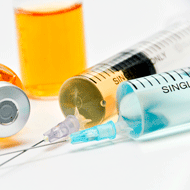UK ebola vaccine trials begin

The ebola outbreak in West Africa has caused more than 1,200 deaths.
Trials of an experimental ebola vaccine are to begin in the UK. Human trials have been fast-tracked due to the current ebola outbreak in West Africa that has killed more than 1,200 people.
A group of 60 volunteers will be injected with the vaccine, which has been developed by GlaxoSmithKline (GSK) and the US National Institutes of Health (NIH).
The trial is being led by the Jenner Institute in Oxford. It aims to determine whether the vaccine causes unforeseen side effects and gives a good immune response to the ebola virus.
Professor Hill, director of the Jenner Institute, said: "The tragic events unfolding in Africa demand an urgent response. In recent years, similar investigational vaccines have safely immunised infants and adults against a range of diseases including malaria, HIV and hepatitis C.
"We, and all our partners on this project, are optimistic that this candidate vaccine may prove useful against ebola."
If the trials are successful, 10,000 doses will be manufactured and made available for an emergency immunisation programme in high risk areas.
Pre-clinical research involving non-human primates suggests the vaccine offers promising protection and no significant side effects.
The vaccine is against the Zaire species of ebola which is circulating West Africa. It uses a single benign ebola virus protein, meaning it cannot cause a person injected with the vaccine to become infected with ebola as it does not contain infectious virus material.



 The veterinary mental health charity Vetlife is inviting the veterinary community to join it for a sponsored cold-water dip.
The veterinary mental health charity Vetlife is inviting the veterinary community to join it for a sponsored cold-water dip.